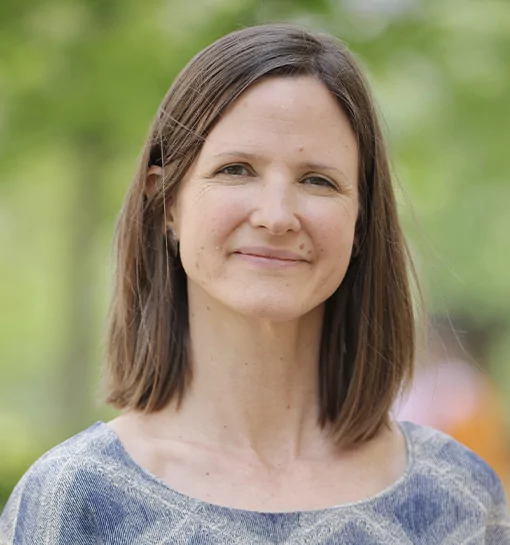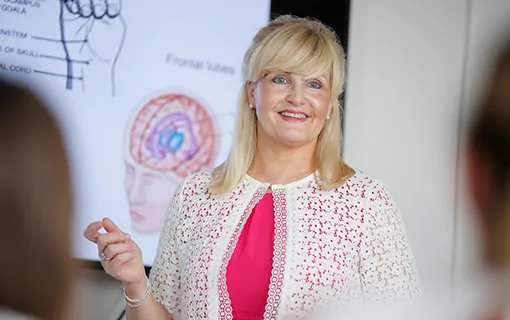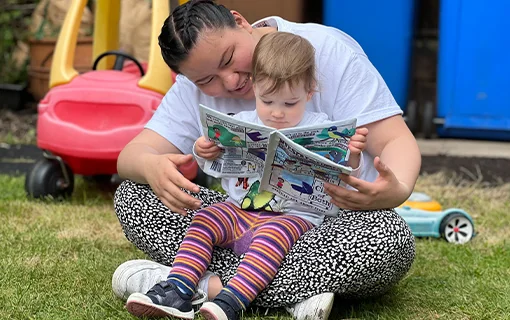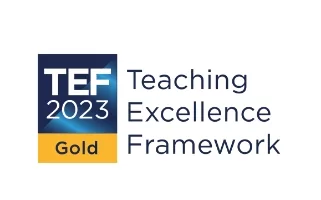Family Crisis Support Service evaluation finds significant improvements to wellbeing and mental health
30 September 2020

Hundreds of parents with twins, triplets or more have significantly improved their wellbeing and mental health when faced with challenging family circumstances, including bereavement, thanks to a unique support service.
Our evaluation of the Family Crisis Support Service, which is run by Twins Trust in partnership with Norland, shows how successful the service has been in allowing families to address their challenges and make significant improvements to family life.
Using HADS (Hospital Anxiety and Depression Scale), we found parents moved from feeling severely depressed to moderate, and from moderately anxious to normal on the scale.
Following intervention from the Family Crisis Support team the improvement in daily family living activities such as sleep, routine, getting out and about and feeding is significant, and our evaluation showed that stress levels improved significantly.
Families of twins, triplets or more often face more challenges than singleton families, Multiple pregnancies and birth are medically complex and can be of greater risk to child and parent health. Twins and triplets are often born prematurely, which can lead to higher mortality. For mums there can be an increased risk of pre-eclampsia and worse mental health outcomes. After birth, social isolation, emotional anxiety, sleep deprivation and worries about finances can be a common occurrence.
COVID-19 has intensified the difficulties for families of multiples, and Twins Trust have reacted quickly to adapt the service to help more families who need support in line with current restrictions. Before COVID, a trained Twins Trust childcare support practitioner or a volunteer fully qualified Norland Nanny, would visit a family in their home offering practical and psychological support. During the peak of the pandemic, there was a 159% increase in use of the service which was adapted to help families virtually – either through video calls or over the phone.
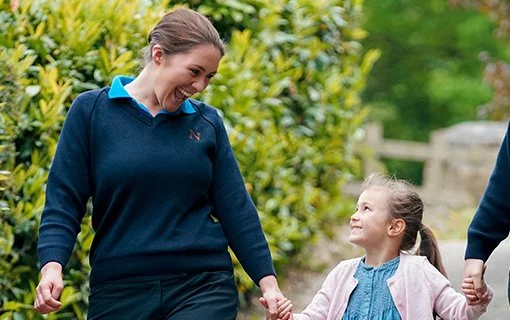
“We are so proud of our nannies who continue to volunteer their time to this vital service and, in so doing, are making a real difference to the lives of children and families living in unbelievably challenging circumstances across the UK.”
Dr Janet Rose, Principal of Norland, said: “We are delighted to continue supporting the Family Crisis Support service during these difficult times. Our recent evaluation evidences a service that successfully offers practical support to parents of multiples in crisis. Since partnering with the Twins Trust to set up the award-winning service in 2014, our nannies have volunteered over 3,000 hours of specialist support to families in severe need. We are so proud of our nannies who continue to volunteer their time to this vital service and, in so doing, are making a real difference to the lives of children and families living in unbelievably challenging circumstances across the UK.”
Dr Theodora Papatheodorou, Research Fellow at Norland, said “This evaluation study is an example of Norland’s commitment to research which provides evidence and substantiates the professional services offered by organisations such as the Twins Trust. Norland is committed to conducting research with stakeholders that impacts on the lives of young children and their families and has wider societal impact.”
Helen Regan from Twins Trust said: “We are here for families who are in dire need – they are either struggling with mental health challenges, struggling with ill health, coping with bereavement or other extreme extenuating circumstances. These families have exhausted all other avenues of help and have nowhere left to turn. We knew we were helping families thanks to anecdotal evidence, but this evaluation report has shown the statistically significant levels of how our interventions are helping. In using the HADS measure, which quantifies levels of anxiety and depression, we moved parents on the scale from feeling severely depressed to moderate and from moderately anxious to normal. This can alert us to specific early intervention focus of support, resources and signposting to other agencies. There is much to celebrate in this first evaluation, the support for parents of multiples and the contribution to child health and wellbeing, is invaluable.”
Read the full evaluation